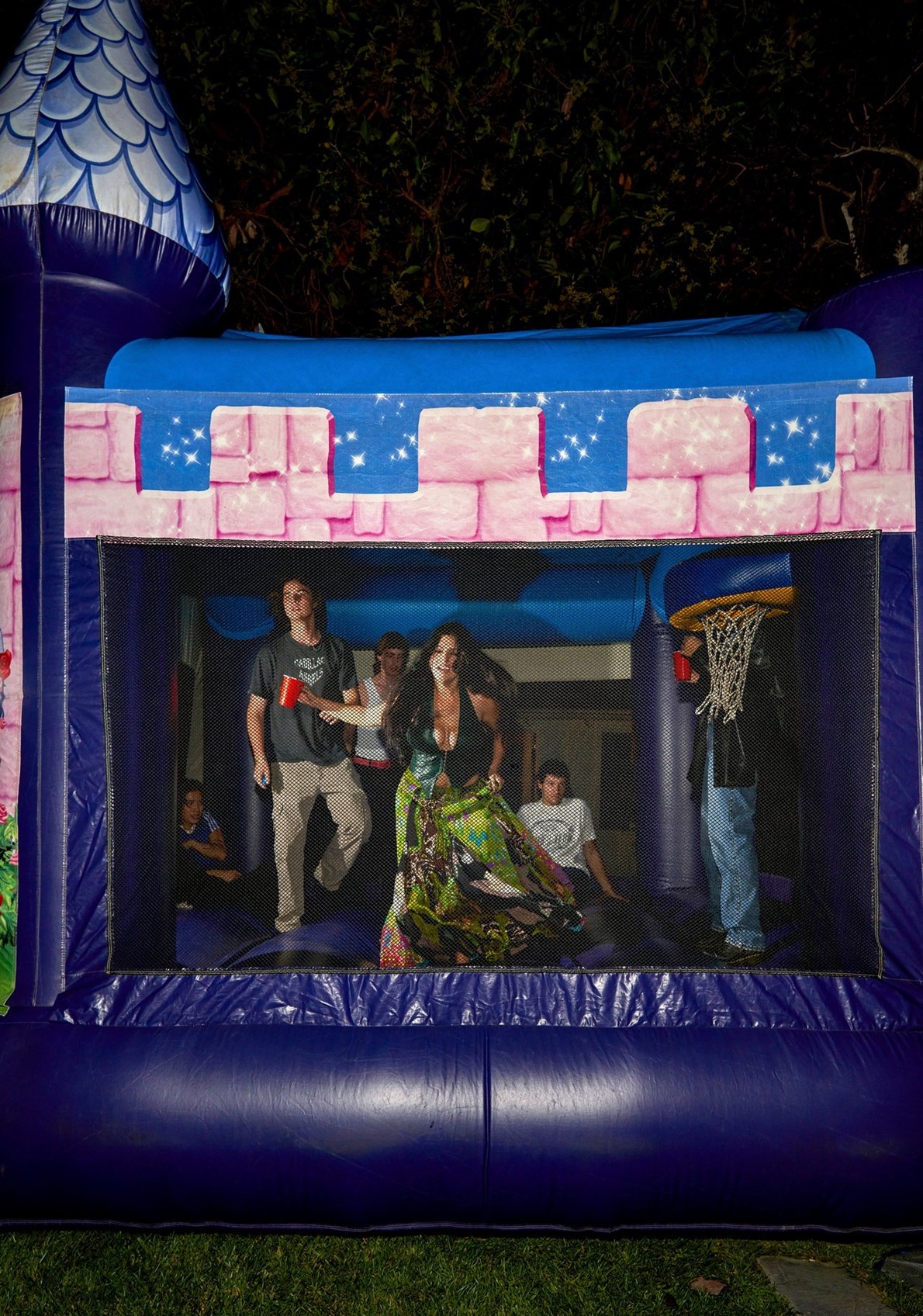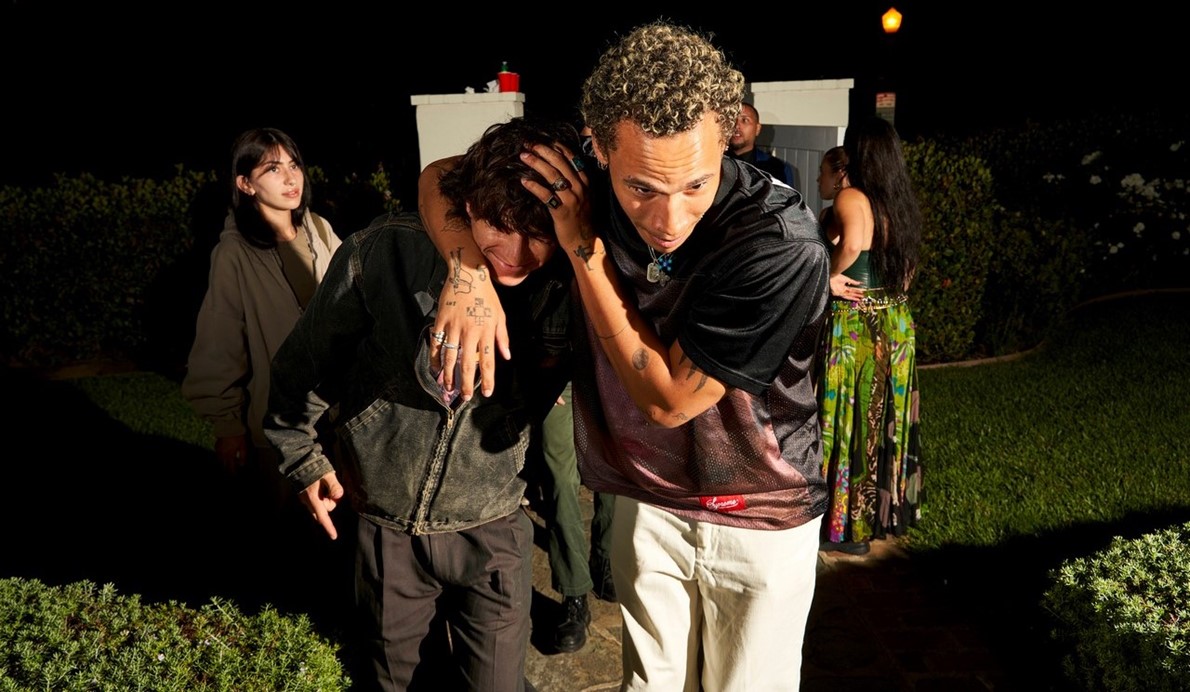“Dramatic” and “absurd” were the words
Natasha Hunt Lee, a 25-year-old musician in
Los Angeles, had in mind while
booking three DJs, a tattoo artist, and a Disney princess bouncy castle for her
album-release party this month.
اضافة اعلان
Also integral to her planning process was one not
quite a word: Partiful. It’s the name of a new event-invitation service that
allows hosts to create mobile-friendly event pages and guests to receive
reminders via text. In the year since it became available for use, it has
already become ubiquitous in Hunt Lee’s social circle.
“It’s definitely the primary party platform right
now,” she said. Shortly after the interview, she left to go to a friend’s
birthday party, which had also been organized using Partiful.
Partiful is far from the first digital invitation
method, but it is vying to become the most relevant to young people. (One tech
publication called the platform “Eventbrite but for Gen Z.”)
The service, which is free to use, is gaining
popularity among people in their 20s who live in big cities and who say it is
more streamlined than group texts or Instagram stories, more casual than
Paperless Post, and less embarrassing than Facebook, which has lost its grip on
people younger than 30.

“Facebook is kind of extinct,” Hunt Lee said.
With soft multicolored gradients layered beneath
animated confetti or Doge heads, Partiful’s interface looks less like the sober
grids of its competitors and more like the blurry experience of spinning across
a dance floor.
“It’s just fun, it’s fresh, and it’s very Gen Z,”
said Carly Adair, 23, who works in tech in Los Angeles.
On the pastel invitation page for Adair’s birthday
dinner in early September, guests RSVP’d by selecting either a thumbs-up or a
crying-face emoji below the words “ENTERING MY 23 ERA.”
The number of event pages created on Partiful has
multiplied by 10 since January, according to Partiful CEO Shreya Murthy, and
its total number of users is “in the hundreds of thousands.” (She declined to
be more specific.) Murthy, who is also one of Partiful’s founders, said the
company had raised $7.4 million in two rounds of funding.
With soft multicolored gradients layered beneath animated confetti or Doge heads, Partiful’s interface looks less like the sober grids of its competitors and more like the blurry experience of spinning across a dance floor.
Parties serve an important social function, Murthy
said, especially for young people trying to build community on the heels of
college, the pandemic or both.
“Every generation, people are like, ‘Oh, the kids
are partying these days,’” she said. “But the kids are always partying, in
every generation.”
At the moment, use of the service is
disproportionately clustered on the coasts of the US. “In terms of locations, a
majority are in New York, followed closely by LA,” Murthy said of where most
Partiful events were being planned. A “vast majority” of users, she added, are
younger than 30.
The social networking platforms young people use to
coordinate in-person events tend to shift over time, said Jennifer Grygiel, an
associate professor at Syracuse University who studies social media.

“Every generation wants to have their own new
startup,” Grygiel said. “It makes them feel a little bit different.”
Most of the parties Silvie Coheleach, 24, a software
engineer in Brooklyn, went to in college were organized using Facebook’s
event-planning feature.
“As Facebook became a bit less trustworthy, in the
opinions of me and my friends, we definitely used it a lot less,” she said.
“And that left a gap for something to come in and be like, ‘How are you going
to organize your party?’”
Coheleach said texting friends to invite them to her
birthday party last year had been a hassle because she had more guests than
could fit in a group chat (at most, an iMessage group can accommodate 32
members). This year, she opted for Partiful to organize her birthday picnic in
Prospect Park.
Every generation wants to have their own new startup. ... It makes them feel a little bit different.
Abena Anim-Somuah, 25, said she preferred Partiful
to Eventbrite because Partiful sends reminders by text message rather than
email — a service that elicits eye rolls from her generation.
“I think we’re at this age right now where
intentional socialization is something we’re more particular about,” said
Anim-Somuah, who has used Partiful to organize more than 20 dinners around New
York City for a food lovers group she started, the Eden Place.
Jordan Rosen, 24, a software engineer, made a
30-seat Benihana reservation and a corresponding Partiful invitation in August
as part of an effort to meet new people in San Francisco, a city he said could
feel “transient.”
Rosen’s friends signed up for spots and brought
friends of their own. “Everyone was doing sake bombs,” he said.
Not everyone has joined the party.
“I guess I’m just skeptical of the app-ification of
everything,” said Ross Boehme, a 29-year-old data analyst in the New York City
borough of Brooklyn. In May, he texted friends to invite them to his Memorial
Day party — a system he described as “perfectly fine.”

Boehme did not rule out using Partiful in the
future, as the last three invitations he had received had come through the
platform. “Maybe I’m going to be a Luddite left behind by everyone,” he said.
To Katie Shia, a 23-year-old product designer in New
York City, Gen Z’s embrace of a digital tool to facilitate in-person connection
feels characteristically ironic.
“We’re extremely online,” she said. “But also we’re always
talking about how tired of being online we are.”
Read more Technology
Jordan News



